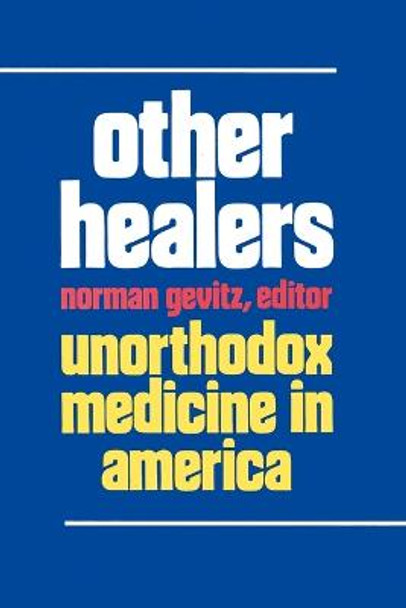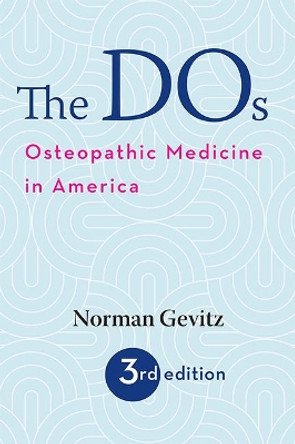Sixty million Americans have relied at some point in their lives on osteopaths, chiropractors, folk or religious healers, naturopaths, homeopaths, and acupuncturists; millions more employ alternative psychological systems, unorthodox diet and fitness programs, and a range of self-help treatments. Yet until recently, most historians and social scientists of medicine have assumed that unorthodox movements were of comparatively minor significance in the study of medicine and society. In "Other Healers" Norman Gevitz and eight other authors explore the most significant alternatives to orthodox medicine to have gained a place in American society from the early 19th century to the present. Neither advocating nor debunking these alternatives, they explore phenomena that range from Thomsonism, the early botanical system that was progenitor of the first native American sects,to the faith-healing of contemporary pentecostals and charasmatics; from the Water Cure Movement, which provided important support for the efforts of early feminist reformers, to osteopathy, whose practitioners are now licensed to offer the same range of services as M.D.'s.
About the AuthorNorman Gevitz is professor of the history of medicine at Ohio University. He is the editor of Other Healers: Unorthodox Medicine in America, also available from Johns Hopkins.
ReviewsThis book deserves an unambiguous welcome as an overview of American irregular medicine which is simultaneously comprehensive (it ranges smoothly from traditional folk medicine and early nineteenth-century medical botany up to Oral Roberts and contemporary chiropractic) and compact (all this in three hundred pages). -- Roy Porter Bulletin of the History of Medicine
Book InformationISBN 9780801837104
Author Norman GevitzFormat Paperback
Page Count 324
Imprint Johns Hopkins University PressPublisher Johns Hopkins University Press
Weight(grams) 522g









